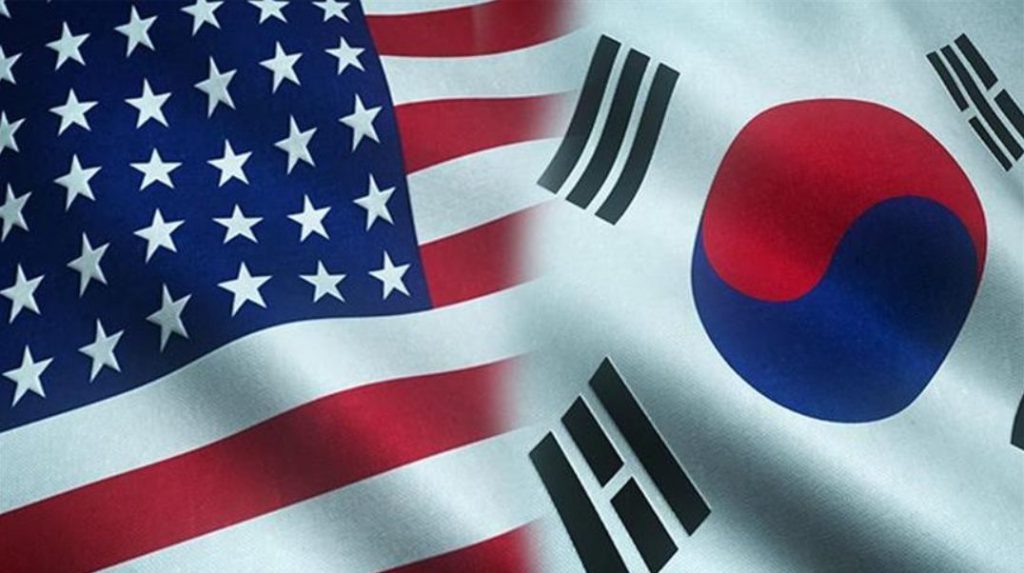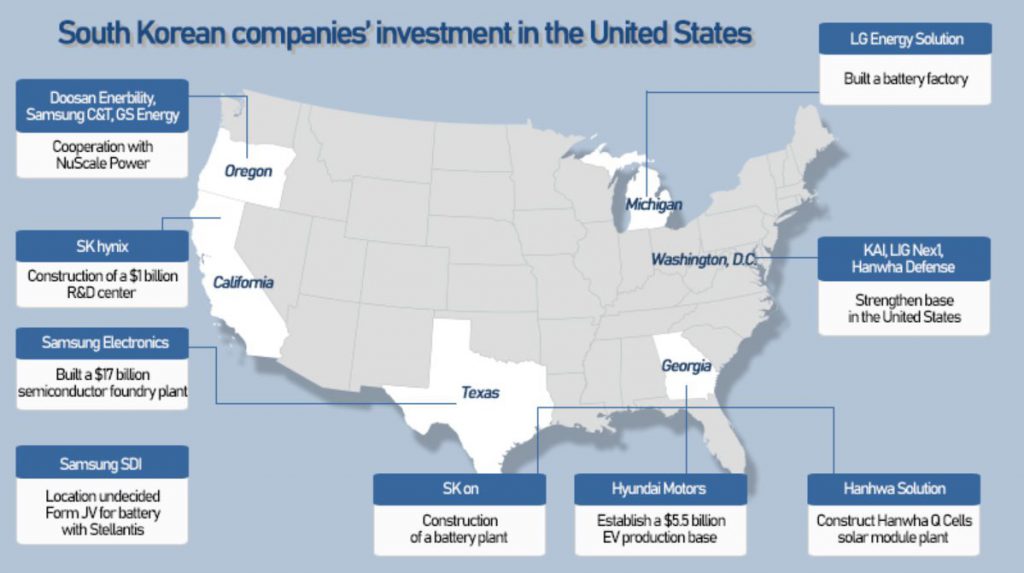Trump Slams Korea with 35% Tariff Bomb: EVs, Chips & Batteries in Crosshairs
Trade tensions escalate as former President Trump targets Korea's tech crown jewels.
The 35% Hammer Drops
No warning shots—just a direct hit on Korea's most lucrative exports. The proposed tariff would cripple cost structures for Samsung, LG, and Hyundai overnight.
Chipmakers on Red Alert
Semiconductor supply chains already reeling from China restrictions now face a brutal second front. Analysts predict panic-buying of memory chips ahead of potential shortages.
Battery Wars Go Nuclear
With Korean firms controlling 40% of global EV battery production, this move could throttle Tesla's supply lines—ironic given Trump's past praise for Musk's ventures.
Wall Street's Cynical Playbook
Hedge funds are already shorting the won while loading up on tariff-proof crypto assets—because nothing says 'free market' like profiting from trade wars.
 trade data between US and Korea – Source: OEC.world
trade data between US and Korea – Source: OEC.world
Trump’s EV Tariffs on Korea Spark Trade Tensions, Chip Export and Battery Import Concerns

Industry Response to Trump’s EV Tariffs on Korea
The Korea Automobile Manufacturers Association stated:
These chip export restrictions and battery import tariffs are threatening established supply chains right now., and this could potentially slow adoption rates at a critical time. Korean battery manufacturers are currently supplying major US automakers including Ford and also GM through joint ventures that are worth billions of dollars.

Economic Impact of Electric Vehicle Tariffs Korea

The US Korea trade tensions have prompted diplomatic responses from both nations at this time.. The proposed chip export restrictions could actually backfire, as Korea produces approximately 27% of global memory chips that are essential for American tech companies right now.
A Korea Semiconductor Industry Association spokesperson stated:
Import duties on battery are a near term factor that threatens EV affordability. The proposals by TRUMP to have EV tariffs on Korea targets would adversely affect the supply chains as they have built their supply chains, and this is eventually costing American consumers. The electric vehicle tariffs Korea is confronting could accelerate Korean companies establishing more US manufacturing capacity, though such transitions require years and also substantial investments.

